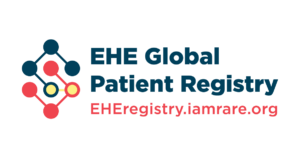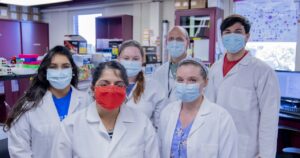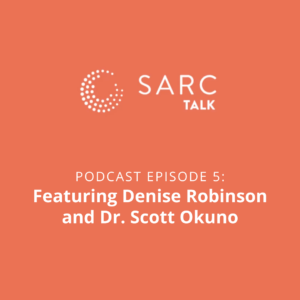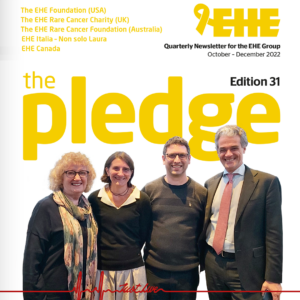TISSUE DONATION IS CRITICAL TO FIND TREATMENTS! Click here to learn more.
Latest EHE News, Events & Research
This research study is open to participants worldwide to advance understanding and treatments for epithelioid hemangioendothelioma (EHE), an ultra-rare vascular sarcoma. Hobart, Wisconsin. June 13, 2023 — The EHE Foundation and the National Organization for Rare Disorders (NORD®) have launched a global patient registry study to research epithelioid hemangioendothelioma (EHE), an ultra-rare vascular sarcoma for […]
Lamar Lab at Albany Medical College Advancing EHE Research The EHE community is fortunate to have Dr. John Lamar, PhD, Associate Professor in the Department of Molecular and Cellular Physiology at Albany Medical College, and his team, working to advance our mission to find effective treatments for EHE. Dr. Lamar’s lab, the ‘Lamar Lab’, has […]
Held on April 15, 2023, during EHE Awareness Month, the annual EHE 360 EMPOWERING PATIENTS 2023 Global Patient Conference featured an international group of clinicians and researchers presenting the latest clinical and research developments in epithelioid hemangioendothelioma (EHE). This virtual conference left EHE patients and families, doctors, researchers, and advocates empowered with a broader understanding of EHE […]
In March Denise Robinson, our Director of Research joined Dr. Scott Okuno, Chief Medical Officer for SARC (Sarcoma Alliance for Research through Collaboration) to talk about EHE research and patient advocacy. Their discussion beautifully lays out the challenges of facilitating research in the ultra-rare disease landscape. Denise and Dr. Okuno also talked about the growth […]
Jane Gutkovich, a founding member of The EHE Foundation and fierce EHE advocate, was a guest on World Cancer Day 2023 in the podcast Patient from Hell. Jane speaks with Samira Daswani in an episode entitled “Navigating Uncertainty, Making Decisions in the Absence of Data, Advocating & Caregiving”. Jane’s journey resonates with many people who […]
Thanks to “Good Vibes for McKenna, A Celebration Benefiting Cancer Research” for hosting an EXTRAORDINARY two-day event held January 21st and 22nd in Fort Myers, Florida. We truly appreciate their $25,000 donation to The EHE Foundation to support EHE research and for creating much needed EHE awareness! The event featured a fine dining experience and […]
McKenna Helm was a fun, caring, empathetic, poised young woman that brightened the life of everyone she touched. She was an integral part of a large extended family, and she loved each and every member of the family unconditionally. To her friends, she was a ray of sunshine on the cloudiest days. As competitive as […]
Our vision at The EHE Foundation is to live in a world where EHE is easily diagnosed and treatable. The support of our community directly impacts every single person diagnosed with EHE. Patients, donors, doctors and researchers help us make that vision a reality. During our Giving Tuesday 2022 campaign, we featured these “Champions of […]
Thank you for helping us reach our $150,000 goal on Giving Tuesday to fund the 2023 Research Grants Program! A special thanks to the 374 donors, 16 people affected by EHE who held successful fundraisers, and the countless individuals that shared their personal EHE story and our mission. We are grateful for your contributions and […]










